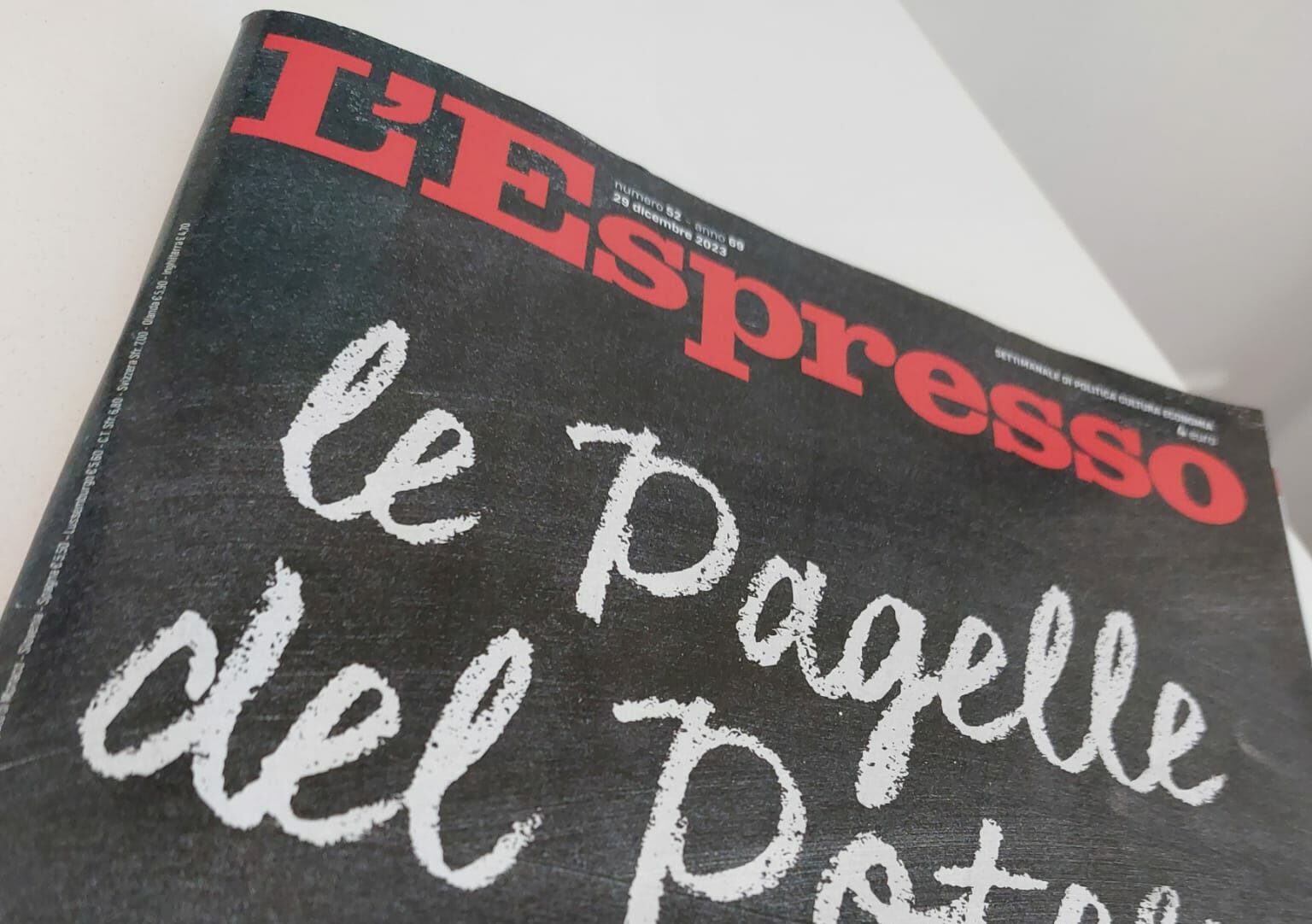But what happened to Espresso?

The evolutions in Espresso now owned by the Ammaturo family. Francis Walsingham's letter
Dear director,
I had returned to Italy for the Christmas holidays and, struck by a bout of nostalgia, I stopped at a newsstand to buy L'Espresso . Moved by memories of my youth and of Umberto Eco's extraordinary column, "Minerva's sachet", I paid 4 euros and took home issue 52 year 69 of the weekly, dated 29 December 2023.
I sit down and start leafing through it. I remembered the card as being better, but these are times of crisis: it doesn't matter. I open the magazine and I am greeted by an editorial by Alessandro Mauro Rossi, director of L' Espresso , on Espresso 's decision to nominate Elena Cecchettin "Person of the Year 2023" according to L'Espresso . Other rather self-referential information follows, but we know that the last days of the year are moments of taking stock: that's right, come on.
Rossi, former director of Forbes Italia , took over from Lirio Abbate a few months after the appointment of the latter, whose editorial project had evidently not convinced the publisher Danilo Iervolino. Furthermore, Iervolino sold the entire ownership of Espresso (already unloaded by the Gedi group) to the Ammaturos, the oil family that controls the energy company Ludoil Energy. So the newspaper of the rebellious left is financed with oil & gas money: these are the times, what can you do about it.
I remind readers of this passage from Startmag which recounted the cordial relations – to put it mildly – between Alessandro Mauro Rossi and the Ammaturo family.
The arrival of the Ammaturo family's capital was celebrated with nothing short of enthusiastic tones by Forbes , then directed by Alessandro Mauro Rossi (also current director of the weekly L'Espresso ). “The history of energy in Italy bears the name of Donato Ammaturo”, wrote the director who even defined the entrepreneur as a “visionary” for having “transformed a family company, founded in 1954 by his grandfather, also Donato, into one of the most important private energy groups in Europe”
What else to say.
In reality, dear editor, there are things to say about the new L'Espresso . Beyond the general weakness of content – pages filled with photos already seen and reviewed everywhere (we are in the era of social media, right?) and very little news – I found some rather tasty contradictions.
First of all, the issue is dedicated to the "report cards of power", and Marina Berlusconi got a good 6.5. After decades of anti-Berlusconism, Silvio's eldest daughter managed to pass the passing mark: this is news! Marco Damilano, one of the directors of the anti-Berlusconi Espresso, must have been stunned.
I then noticed that a crucial topic like that of the former Gkn was entrusted to Diletta Bellotti, who goes by the nom de guerre of "ecothug" and is a professional influencer on Instagram and activist against agromafia. Definitely the right person to talk about the industrial crisis: and in fact the piece is extraordinary, full of facts and absolutely free of empty rhetorical formulas such as "returning the burned jobs to the territory, creating a socially integrated factory at the service of the community". What does it mean? I don't know.
Even Franco Corleone, historic exponent of the Greens, has a column: the new that advances. A page (Useful spending. Fewer inaugurations and more maintenance ) was also given to Massimiliano Atelli, head of cabinet of the Minister for Sport Andrea Abodi. A few pages earlier, an article on space is full of quotes from minister Adolfo Urso. For a left-left weekly, the right-right government hosts seem quite numerous to me.
Then appears Alberto Bruschini, former administrator of Banca Monte dei Paschi di Siena arrested in 1993 and acquitted ten years later, to talk about taxation of large foreign digital companies.
The in-depth analysis of the inevitable energy transition addresses the topic of rare earths: well, quite right, there is a need for good information on issues that are so delicate and so crucial for our future. Reading the article, however, I noticed something strange: it talks about rare earths, yet lithium, titanium, cobalt, zinc are mentioned. I sent an email to one of your journalists who often deals with these things to get confirmation of my suspicions, and I got them: neither the lithium, nor the titanium, nor the cobalt nor the zinc mentioned in the article are Rare lands; at most they are critical minerals, or critical raw materials. Okay, whatever you want it to be. Your journalist, on the other hand, didn't take it very well, judging by his outburst about X : if he's nervous today, know that it's my fault.
I arrive exhausted at the last page, dear editor. And in the space that was Eco's I find myself… Ray Banhoff, who I discover is a writer and photographer of "eccentric" and "unclassifiable".
I will never give in to nostalgia again.
Best regards,
Francis Walsingham
This is a machine translation from Italian language of a post published on Start Magazine at the URL https://www.startmag.it/mondo/espresso-nuovo-corso-alessandro-mauro-rossi/ on Fri, 12 Jan 2024 15:16:23 +0000.
